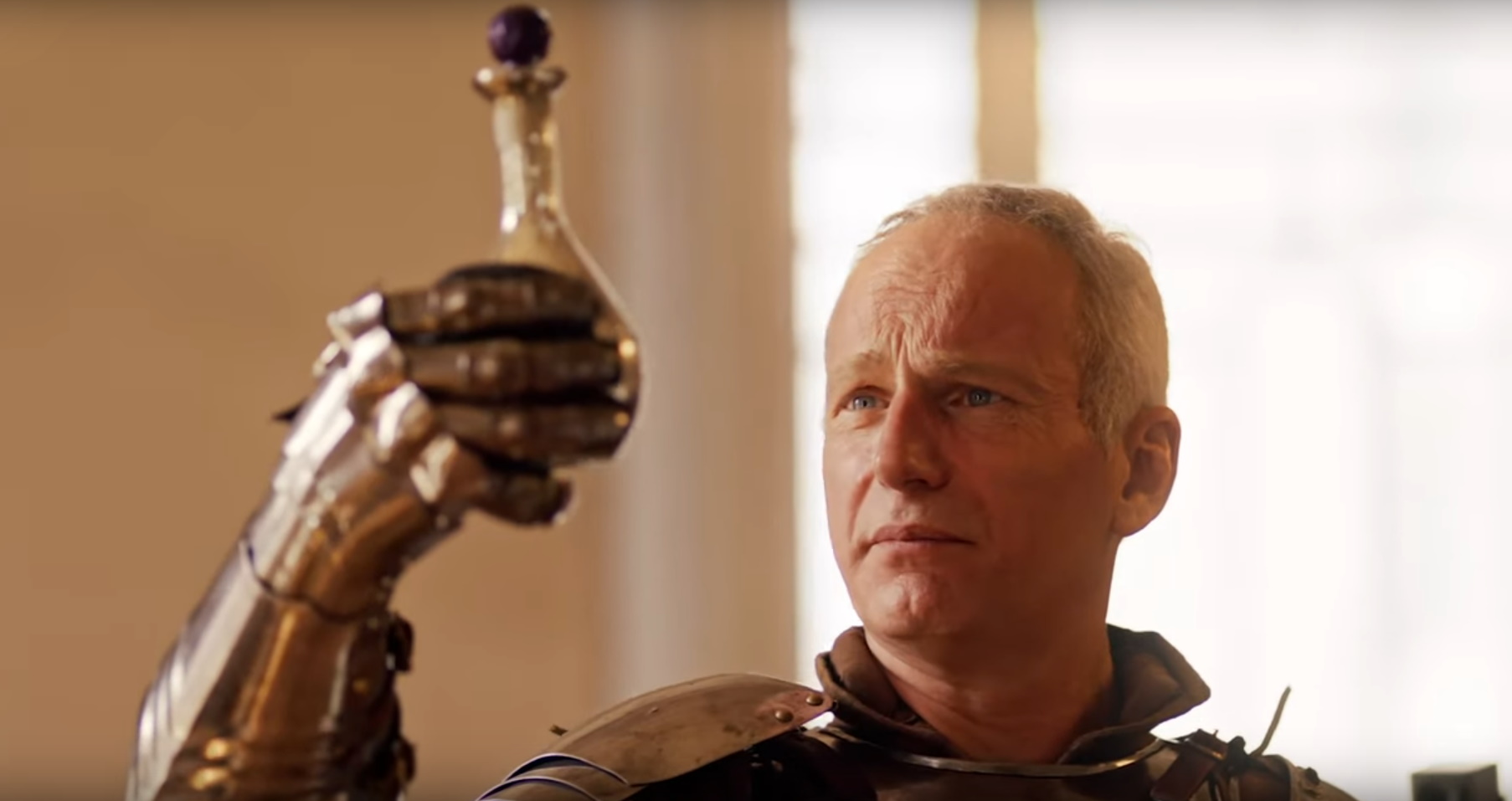Larian's Swen Vincke says AI-obsessed studios won't 'have a competitive advantage', because those tools are 'gonna be what's available to everybody'
Vincke says that all games'll need the human touch, even if AI's been useful for early prototyping and annoying busywork.

AI—that is, the annoyingly titled generative AI, which is super different from the AI we're used to in games, is also different from machine learning technology—has been a massive point of contention just about everywhere. In art, in music, in acting, and in coding. As a result, it's also been an issue in videogames, because they're a combination of all those things, regardless of what the boss of Amazon Games thinks.
It's a problem Larian Studios' founder Swen Vincke has been tackling, as per a recent interview with GameSpot (shown below). Partially because, well, despite being a studio known for making games like the ones yer grandma used to make—handcrafted and filled with loving detail—Larian has been using generative and deep-learning AI, it's just pretty much impossible to talk about without setting off alarm bells.
Vincke goes into the kind of things Larian uses it for in transparent detail: The "automation of tasks that nobody wants to do. The obvious things, like motion capture cleaning, or voice editing." Vincke also mentions "retargeting", which is an automated process that re-adjusts otherwise handmade animations for different species of varying shapes and sizes, cutting out a huge amount of busywork for the studio's animators. "These are things for which machine learning works really well."
The other big help has been in what Vincke calls "whiteboxing", a game development term that's used to describe what is, essentially, prototyping. The term whiteboxing comes from the white boxes used to represent various game elements, actors, and so on. It's the digital drawing board of game development.
"We discovered in the past, that if we write out a situation, and we talk about it, we're going to get very excited .. we're going to script it [in the whitebox] and we're going to try and play it." However, Vincke says, doing so with a bunch of polygons often doesn't actually give designers the right vibe.
Generative AI, then, is used by Larian to bridge that gap in the testing and ideation phase. "If you completely decorate the entire level, and you do the same exercise, and you say 'here's the situation' and you give it to the scriptor, it's going to feel more real—and you'll get a better feel for 'is this situation going to work, yes or no'."
However, "the only thing that was generated was the environment at that point in time—it's never gonna ship." Once something's passed whiteboxing, Vincke explains, it goes into "orangeboxing", which is where things are made by hand.
The biggest gaming news, reviews and hardware deals
Keep up to date with the most important stories and the best deals, as picked by the PC Gamer team.
Larian's also experimenting with something Vincke calls "narrative validation"—essentially, automated, AI-assisted systems that will tell writers (who are still creating scripts by hand) whether something they've changed has created an inaccuracy or incongruity somewhere else. A sort of plot-hole scout for videogame scripts that get into the hundreds and hundreds of thousands of words and 1,800 characters. An extremely useful tool to have for a game with an absurd amount of choices—though he admits the tech isn't quite there yet.
As for the kind of companies that are going gaga over neo-NPCs and entirely AI-generated nonsense worlds? While Vincke acknowledges the fears of the industry at large, he ultimately thinks those publishers and studios are missing the point.
"I don't think you would have a competitive advantage if you do [that], because it's gonna be what's available to everybody—if the baseline goes up because generation is available to everybody? Fine, that's a new reality that we're in. But you're still gonna wanna create something special on top of that, and I think that's where teams like us will make the difference.
"I don't think that people in my position that say 'oh, we'll replace everyone with AI' are doing the right thing, they're doing the wrong thing. But what I do think is we're gonna jump forward in the kinds of games we make … we're gonna be making our games differently, but to say that it'll replace the craftsmanship? I think we're very far from it."
It seems eminently reasonable, and it's the sort of drum I've been banging the entire time—for artists and animators in particular, deep-learning tech is a powerful thing to work into various tools, cutting out hours of busywork. Into the Spiderverse was using machine-learning tech to draw its comic-book lines back in 2018, and I don't think anyone would accuse that movie of being anything other than hand-crafted.
But we've been forced to endure the nonsense words of tech-drowned executives who say it's going to change everything forever every two years or so. People lose their jobs, the experiment doesn't work, and people go in for round two of pie-in-the-sky nonsense.
In actuality, what I've observed is that generative AI tech is used in sort of boring, practical ways. A prime example: WoW's been using it to re-size equipment to different character models. It's hardly a game-changer, it's just a help. And, as Vincke says, the human touch is the key to making something anybody gives a crap about: "As long as the human difference is there, we will be able to make a difference."
Baldur's Gate 3 romance: Who to pursue
Baldur's Gate 3 multiplayer: How co-op works
Baldur's Gate 3 endings: For better or worse
Baldur's Gate 3 multiclass builds: Coolest combos
Best RPGs: The greatest you can play now

Harvey's history with games started when he first begged his parents for a World of Warcraft subscription aged 12, though he's since been cursed with Final Fantasy 14-brain and a huge crush on G'raha Tia. He made his start as a freelancer, writing for websites like Techradar, The Escapist, Dicebreaker, The Gamer, Into the Spine—and of course, PC Gamer. He'll sink his teeth into anything that looks interesting, though he has a soft spot for RPGs, soulslikes, roguelikes, deckbuilders, MMOs, and weird indie titles. He also plays a shelf load of TTRPGs in his offline time. Don't ask him what his favourite system is, he has too many.
You must confirm your public display name before commenting
Please logout and then login again, you will then be prompted to enter your display name.



